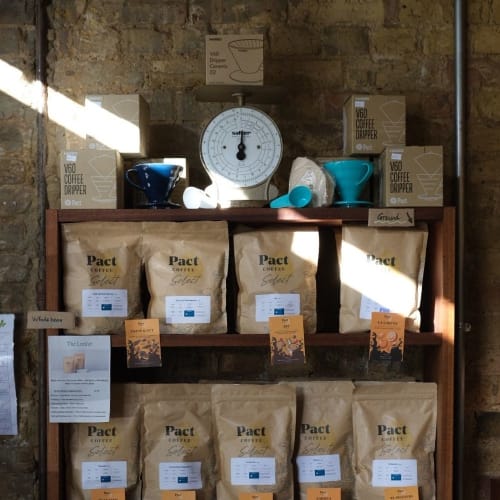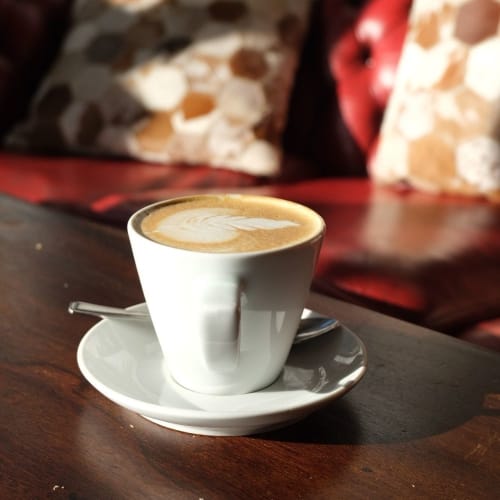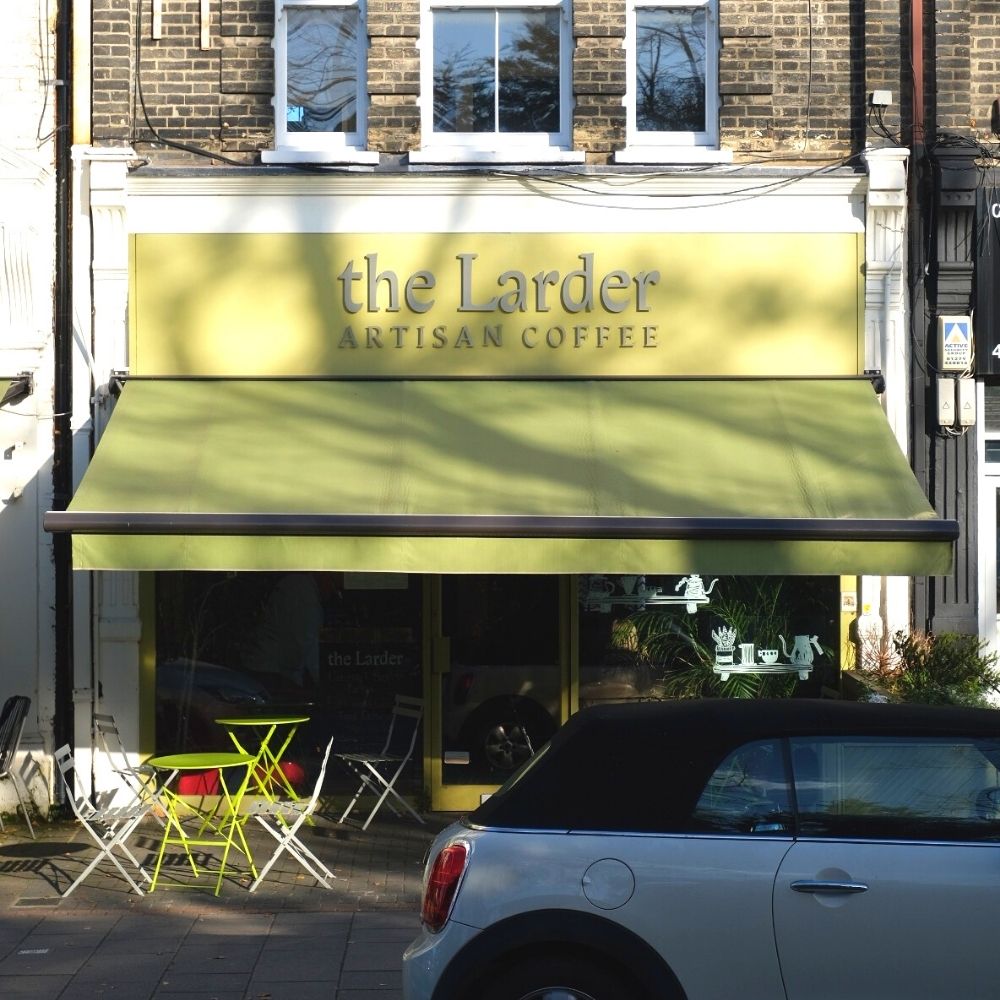Dan Beharall is Founder and Owner of The Larder, fine food specialists and speciality coffee purveyors, with four locations across London. The Larder has recently come on-board as a Pact customer and we sat down with Dan to discuss weathering the Covid-19 storm and how to run a hospitality business in the face of adversity.

Can you tell us about your journey to becoming a business owner?
My first job was in a coffee shop in 1986, it was a far cry from coffee shops of today, but it piqued my interest. Later I moved to London and had various roles in hospitality, before I went to university and got a “serious” job. After about 20 years though, I was ready to jack that in as the pull of the hospitality world was strong. So, I decided to set something up and had a look around at the local area. Though the independent coffee movement was in its infancy, it was strengthening and we could see that in Wanstead - with a lot of people in creative sectors - there would be a good demand for a café deli. That’s where we kicked off in 2006.
How would you summarise what The Larder is?
I’m conscious that a lot of businesses are a bit over ambitious in their mission statement, you think that everyone who sets up anything is going to save the world. But really, we have to be a bit honest, we’re a business, we’re a coffee shop. So, we’re not big into mission statements, but if we’ve ever talked about one, it would be to be the number one choice for food and drink in our local area.

The last two years have been extremely challenging for the hospitality industry. How have you managed to ride out that wave?
The industry has suffered a lot in the last two years, however, independent coffee shops have actually been able to do very well. This is through support packages and the way demographic changes have worked – because big coffee chains are located at big transport hubs and busy urban centres, whereas independent coffee shops are mostly further out. So, it’s a quirk of luck that our sector has perhaps not had to face as tough a challenge. That’s not to say it hasn’t been challenging, with managing staff through furlough and making sure you do right by your team, by keeping people on the books and supporting people when there were actual closures. We also had to be pragmatic coming out of the lockdowns, to ensure we could survive long term. We carefully and consciously re-opened with a limited menu and service and held on to the core coffee business and product quality, there we’ve made no compromise. We’ve just compromised on the way we serve and thankfully, that’s served us well.
How are each of your four unique locations special?
We are conscious to say we are a collection of sites, not a chain. Because when we’ve found a new opportunity for a site, we’ve chosen to play to the strengths of the premises and make sure we’re aware of the needs of the different customer demographics. In Wanstead, our original site, we are still a shop as well as a café – it’s on the High Street and we tailor to that accordingly, because people come in to buy deli produce, as well as have a cup of coffee and their lunch. But in Epping Forest, our customers are people that are coming back from a walk, or going for a ride. So, it was much more a place for hot breakfasts or big mugs of hot chocolate. Walthamstow Wetlands is a nature reserve, so it has a pretty similar service. Whereas at the William Morris Gallery, half of the customers have come there specifically to enjoy the art collection, they’re a different age group and we sell a lot more scones and clotted cream over there than anywhere else. What runs through them all is the core product ethos – the same sourcing, same quality and the same enthusiasm in the service.
Do you have any tips for hospitality business owners starting out?
My first piece of advice is to collaborate. The danger is that you start with the creative mission objective and you then lose the ability to action it, because you become a business manager. Make sure you engineer your time and your resources so that the core mission doesn’t get lost and so you can spend enough time driving it forward, or you risk diluting what you set out to do. That means collaborating. Acknowledge all the different moving parts and outsource where necessary. My second core bit of advice, which may be quite obvious, is that marketing and engagement is vital. We were on a High Street and there was nothing like us, so we were new and fresh, so people came and we were very busy – this wasn’t something to take for granted. The last bit of advice is to be sure you know why you’re doing it and what you’re trying to achieve. If you’ve got social objectives for example, then great, but you need to make enough money to keep a roof over your head and have food on the table.
Why have you chosen to start using Pact Coffee at The Larder?
With ingredients in a dish on our menu, in most cases you can swap out items and chop and change. But when it comes to coffee, which is at the core of what we’re doing, that’s a much bigger decision. It needs more stability and it needs to be a good relationship. Our first set of criteria is provenance. We need to know our roaster, but we also need to trust that they know the farmers. This all reflects what our own customers expect, we are a middleman at the end of the day. We liked that the coffees are named after the farms, we liked that Pact supports female-led operations and we liked the Direct Trade model. The second set of criteria was quality – we couldn’t justify well sourced, but bad coffee. When we went to the Roastery we were delighted that we actually did get oranges when it was suggested we would. We felt that the coffee was delivering those individual flavour profiles, they weren’t just something written up in the way you suspect they might be on a wine list sometimes! Overall, it’s not a decision we took lightly. In 15 years, Pact is the second roaster we’ve engaged with and we’re looking forward to longevity in our relationship.
What do you do when you’re not working?
You do need to somehow engineer some non-work time, because when you run your own business there’s no natural switching off point. I don’t do that enough, but I enjoy photography and I’m fighting to devote more time to that.
How do you like your coffee?
Perhaps because milk agrees with me less as I get older, but having been an espresso and cappuccino drinker, I now prefer filter. I enjoy pour-over more than anything, because I don’t need sugar in it, as it brings out the natural sweetness in the roast. But I usually make French Press in the morning for myself and my wife.
Read more
If you enjoyed this interview, check out our handy guide on where to find the very best independent coffee shops in London
Views: